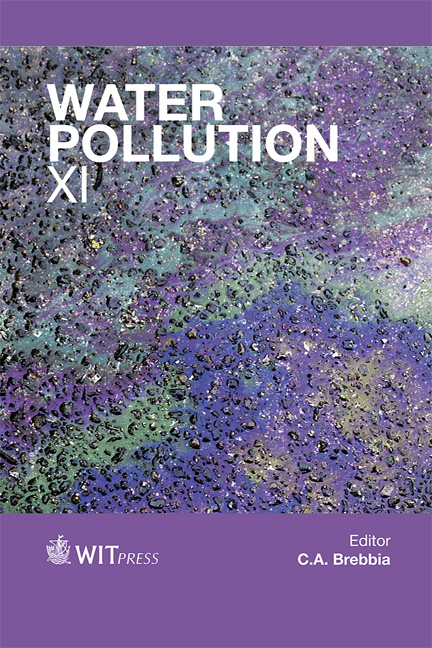Evaluation Of Groundwater Quality In Dongula Basin: The Northern State Of Sudan
Price
Free (open access)
Transaction
Volume
164
Pages
12
Page Range
67 - 78
Published
2012
Size
1,299 kb
Paper DOI
10.2495/WP120061
Copyright
WIT Press
Author(s)
H. M. A. M. Omer
Abstract
The purpose of this paper is to evaluate the quality and chemical features of groundwater in the Dongola basin, Northern State, Sudan. The majority of water samples were moderately hard water, and temporarily hard – carbonate and bicarbonate hardness. The dominant anion is carbonate and bicarbonate (CO3 --, HCO3 -); and the dominant cation is sodium on the west side of the river (water type – Trona rocks). The majority of water samples taken at the west river bank were (sodium-calcium-magnesium)-(bicarbonate-sulphate) type, while at the east river bank, the majority was (sodium-calcium-magnesium)-(bicarbonate) type. (Sulphate-chloride) type was found for samples taken at the two banks of the river while (sulphate) and (chloride) types were found only in samples taken at the west bank. Keywords: Sudan, Northern State, Dongula, Dongula basin, River Nile, groundwater water types. 1 Introduction The hydrological structure of the Dongola Basin is considered to be one of the most important groundwater basins in Sudan in terms of groundwater availability, water quality and degree of utilization. The basin is considered as the northern extension of the Blue Nile–Khartoum rift basin. Groundwater occurs in the sandstone layers of the Wadi El Melek formation and, to a lesser extent, in the Wadi Howar formation and the sandy lenses of the river deposits. Depth to groundwater is controlled by topography, basement configuration, proximity to the River Nile, as well as the existing pumping regime [1]. The groundwater reflects the mineralogical composition of the rocks in the aquifer and also can be used to localize recharge areas and to determine the origin of
Keywords
Sudan, Northern State, Dongula, Dongula basin, River Nile, groundwater water types





